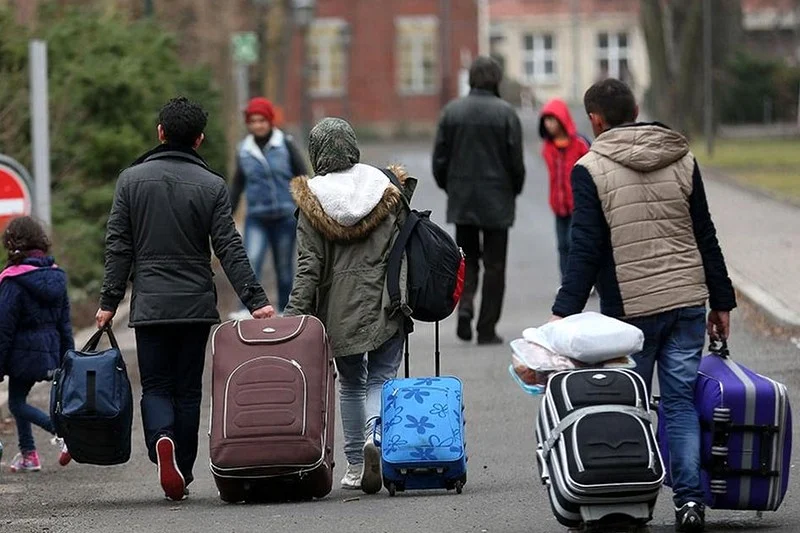Finally, the dispute within the Bundestag’s government coalition over the refugee payment card has been resolved. The Democratic Party and the Free Democratic Party had been at odds for many months, with states and municipalities calling for relief in refugee care amidst hopes for reduced future asylum applications. Initially, asylum seekers received a modest cash allowance for personal expenses. However, a consensus was reached among the Green Party, the Social Democratic Party, and the Free Democratic Party in Parliament. This agreement stipulates that the majority of state-provided benefits will now be loaded onto a smart card specifically designated for shopping purposes.
The head of the parliamentary group of the Social Democratic Party, Dagmar Schmidt, expressed his satisfaction with the agreement and the support of the states in implementing payment cards for refugees in an interview with the newspaper “Süddeutsche”. He emphasized that the coalition will adhere to the agreement and work towards creating a secure law for the state-supported project.
The refugee payment card aims to relieve municipalities from the burden of disbursing cash payments to asylum seekers. Additionally, it serves to prevent protection seekers from transferring funds abroad, whether to their families or to smugglers. This new card strictly prohibits international money transfers and currently does not support local direct debits or transfers without prior approval.
Despite resolving the dispute over the payment card, the issue of managing daily transactions for asylum seekers without cash continues to stir controversy in Parliament. The federal government has only provided a broad framework for card operations, leaving municipalities to handle the specifics. The draft from the Federal Ministry of Social Affairs has yet to yield concrete results. The Free Democratic Party (FDP) emphasized its efforts in achieving consensus, noting that objections have now subsided. FDP MP Jensen Teuterin highlighted the impending introduction of a refugee payment card, stressing the necessity for a more realistic approach to immigration policy.
According to Teuterin, the Greens do not see their objections as hindrances, but rather as necessary adjustments to a poorly researched plan. They argue that the payment card should not be seen merely as a barrier to integration. Stephanie Aeffner of the Greens in Parliament remarked, “With transfers and direct debits not being feasible with the card, municipalities may encounter unnecessary complications, which won’t benefit anyone.”
Affter, the social policy rapporteur at the Green Organization and a critic of the payment card, believed that the card would not bring about significant changes in the initial reception centers. He argued that priority should instead be given to benefits in kind, such as covering rent and electricity. While the state currently covers all services, refugees would need additional funds for expenses such as electricity, telephones, and shopping when they move to an apartment. However, this would not be possible with the current pocket money of 50 euros or a smart card. This situation would require a significant administrative effort, as refugees would have to visit the office for every small detail, and municipalities would be obligated to approve each service separately.





